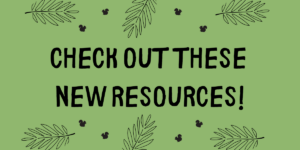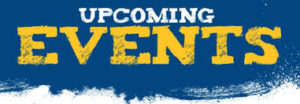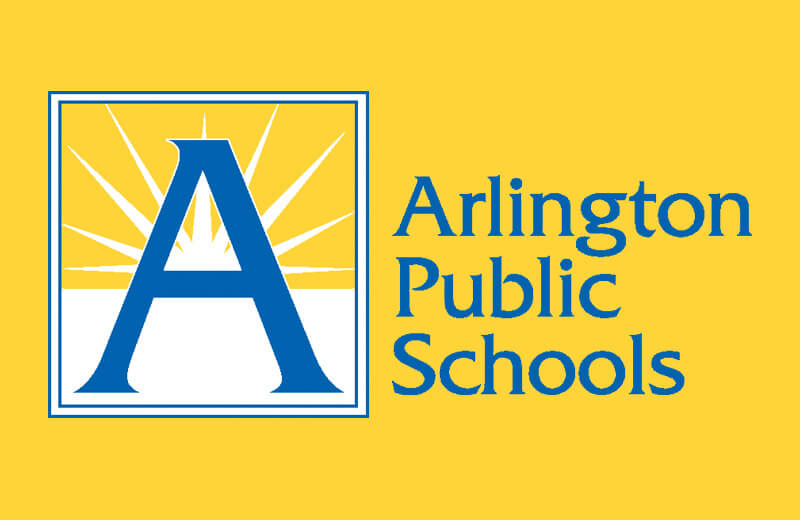Good evening! Don’t miss this week’s session with Dr. Erin Berman – who will present on Worry and Anxiety in Children and Youth at 7pm on Tuesday, September 28th. Dr. Berman is an engaging presenter, and we’re very grateful to welcome her back to Arlington to share helpful information and with our community. We’ve enjoyed having the opportunity to connect with parents here at the PRC, by phone, and to virtually connect with many of you during recent sessions and meetings. During last week’s Special Education Advisory Committee meeting there was discussion regarding the status of COVID Recovery Services. The Office of Special Education will be posting and forwarding an update later this week, but please contact the Parent Resource Center with questions you might have.
As we round at September, we acknowledge Deaf Awareness Month, a time to celebrate the rich cultural history of the Deaf community, and continue the work of advocating for the rights of Deaf people everywhere. Learn more about APS’ Deaf and Hard of Hearing Services and Audiological Services
Here are some fun facts from csd.org:
- Sign language is not universal. Why not? Because sign languages develop naturally out in communities, the same way spoken languages do. Sign languages aren’t artificially created, nor are they gifts given to deaf people by hearing ones—they’re fully-realized, complex languages with their own grammars, syntaxes, and vocabularies.
- In North America, the primary sign language used is American Sign Language (ASL).
- There is an International Sign language that was artificially created (by Deaf people) to communicate worldwide, in situations like the United Nations.
- According to the World Federation of the Deaf there are more than 200 signed languages used worldwide!
- Since signed languages are created by Deaf people, they are not related to the spoken languages used in the same areas. For example, ASL and British Sign Language (BSL) are very different, even though many people in American and the UK use the same spoken language, English.
VDOE Deaf/Hard of Hearing Resource Links
- Fast Facts IEP Special Factors: Considerations for Students Who are Deaf or Hard of Hearing (Word)
- Cornerstones Building Blocks of Literacy – (a division of PBS Read Beween the Lions) offers online, research-based literacy units for teachers of young children who are deaf or hard of hearing and use sign language.
- Deaf Characters in Adolescent Literature – offers a list of books with characters who are deaf, websites, author interviews, and book reviews.
- Virginia Department for the Deaf and Hard of Hearing (VDDHH) – works to reduce the communication barriers between persons who are deaf or hard of hearing and their families and the professionals who serve them.
- Virginia Early Hearing Detection and Intervention Program, Virginia Department of Health – the goal of Virginia’s Newborn Hearing Screening program is to identify congenital hearing loss in children by three months of age and enroll them in appropriate early intervention by six months of age.
- VA Relay – enables people who are deaf, hard of hearing, deafblind, or speech disabled to communicate by TTY or another assistive telephone device with anyone who uses a standard phone.
- More
Reading Rockets Four Titles by Deaf, Hard of Hearing and Deafblind Authors
Formed Families Forward – Fall Classes for Youth
This fall, Formed Families Forward is offering two new FREE virtual classes for youth in grades 5 through 9. 5th and 6th graders are invited to learn the real facts about e-cigarettes and vaping with the CATCH My Breath program. Students will participate in great activities to build awareness and practice resistance. The course is 4 weekly sessions, 5:45 – 6:30 PM on Thursdays, starting October 13.
REGISTER HERE for CATCH My Breath.
7th, 8th and 9th graders can join peers for the Healthy Relationships Plus Program, which uses open dialogue and role playing to engage students in enthusiastic discussions about peer pressure, help-seeking, media literacy, healthy and unhealthy peer and dating relationships, and healthy communication. The Healthy Relationships Plus Program is 7 weekly sessions on Wednesdays, 5:15 – 7:15 PM starting October 7.
REGISTER HERE for Healthy Relationships Plus Program.
Each course is led by a team of two trained young adult facilitators who have passed background checks, with the support of FFF professional staff. Thanks to the support of Fairfax County Partners in Prevention Fund, these courses are available free of charge. Regular attendance is expected and gift cards can be earned by those who participate weekly.
 Contact
Contact  Calendars
Calendars Careers
Careers Engage
Engage  District
District



